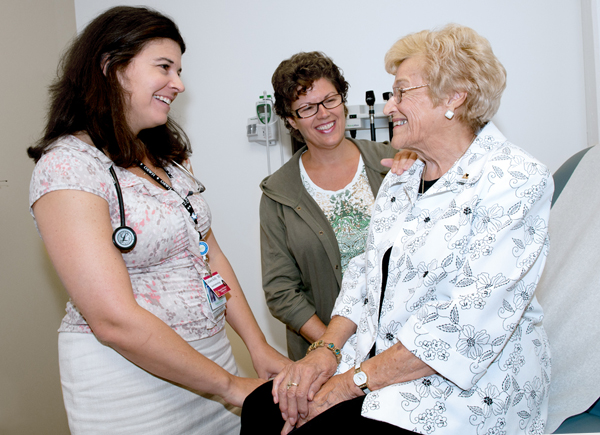Thank you for your interest in our program. We invite you to read more about fecal transplantation below.

If you are interested in this treatment option, please complete the fecal transplant patient intake form and fax it to us at 401-793-7801, Attention: Kathy Primo, RN, or mail to the address below.
Colleen Kelly, MD, will review the information you provide and we will be in touch with you to discuss making an appointment.
Women's Medicine Collaborative
146 West River Street
Providence, RI 02904
Attn: Penelope Ramos, RN
What is fecal transplant?
Your body has a lot of necessary (good) bacteria in its gastrointestinal (GI) tract. Fecal transplant involves taking stool from a healthy person and transferring it into a person suffering from a disease caused by reduced amounts of the necessary (good) bacteria. Fecal transplant is most commonly used as a treatment for a disease caused by overgrowth of a (bad) bacteria called Clostridium difficile (or C diff) when standard therapies have failed.
How does fecal transplant work?
Our GI tract contains thousands of different bacteria and other microorganisms which are essential to maintaining health. Antibiotics can disrupt these bacteria and allow disease-causing bacteria such as C diff to flourish. Fecal transplant involves transferring the necessary (good) microorganisms from a healthy donor into a patient with C diff infection. These bacteria then begin to grow in the patient's colon and prevent C diff from overgrowing again.
Read more about fecal transplant